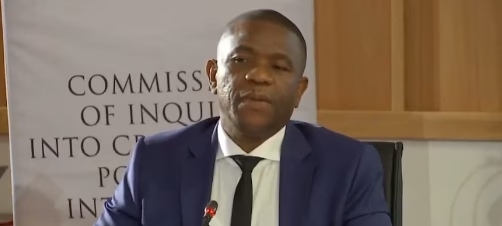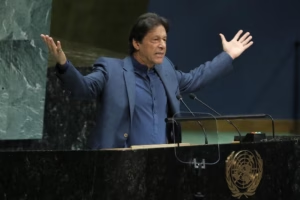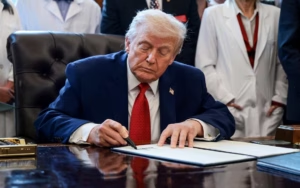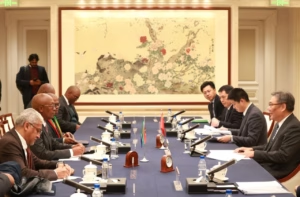KZN Police Commissioner, Lieutenant-General Nhlanhla Mkhwanazi, has told the Madlanga Commission that Member of Parliament Fadiel Adams gained access to crime intelligence information and treated it in a manner he described as “reckless”. His remarks, delivered in Pretoria on Thursday, have raised questions about political interference in sensitive state matters and the handling of classified material.
Access Beyond Mandate
According to Mkhwanazi, the intelligence in question was meant solely for vetted members of the Joint Standing Committee on Intelligence, a parliamentary structure with oversight over the country’s intelligence services. Adams, however, is not a member of this body, and Mkhwanazi said he had no authorisation to receive or handle such documents.
“Adams does not serve on that committee, yet he reportedly accessed and recklessly handled this intelligence, including sharing it publicly,”
said Mkhwanazi.
The commissioner said Adams used his parliamentary position to access intelligence that he should never have been able to see. He stressed that the material Adams viewed was not only confidential but also tied to live investigations that could be endangered by careless disclosure.
General Mkhwanazi has Fadiel Adams by the balls, there’s no way out for him on this one.
Lord Mkhwanazi uza naye step by step 🔥🔥🔥#MadlangaCommission pic.twitter.com/4o8AeAoTC1
— m a s h è s h a 💨 (@_mashesha) September 18, 2025
Impact on Investigations
Mkhwanazi explained that Adams’ actions directly affected the work of the KwaZulu-Natal Provincial Political Task Team (PKTT), which was investigating politically motivated crimes. Sensitive information, once made public, could compromise the integrity of ongoing investigations, he warned.
At the same time, Mkhwanazi noted that Adams had opened three criminal cases in Cape Town in 2024, followed by others in Gauteng. He further lodged a complaint with Police Minister Senzo Mchunu via email, alleging misconduct within the police.
However, the commissioner argued that these cases and complaints lacked credible criminal grounds. He characterised them as largely centred on the South African Police Service’s vetting procedures, a matter he said Adams had no right to probe, given the classified context.
The Democratic Alliance has found itself implicated by General Mkhwanazi in the Madlanga Inquiry for breaking the law and trying to destabilize crime intelligence. pic.twitter.com/X1hg5CrrO9
— NOWinSA (@NowInSA) September 18, 2025
Allegations Without Proof
The intelligence that Adams had drawn upon included claims that SAPS manipulated its vetting systems and allegedly used money from a classified secret account to buy vehicles for the PKTT. Mkhwanazi emphasised that these allegations were not backed by verified evidence.
He pointed out that Adams did not possess official access to detailed financial records of the secret account and therefore could not substantiate his accusations.
“These are classified matters. Adams’ allegations are based on incomplete information and are being assessed through formal criminal investigations,”
said Mkhwanazi.
Broader Concerns of Political Interference
Beyond the specific case of Adams, Mkhwanazi told the commission that investigators had observed a troubling pattern of political figures attempting to overreach into law enforcement matters. He indicated that more evidence would be brought before the commission pointing to potential breaches of national security protocols involving other politicians.
The commissioner framed the issue as systemic, saying that political involvement in intelligence and policing was creating serious risks for national security and undermining the work of specialised units.
General Mkhwanazi says the MP, Mr Fadiel Adams leader of the National Coloured Congress had access to unauthorised intelligence information.#MadlangaCommission pic.twitter.com/R7TFiYrrSb
— m a s h è s h a 💨 (@_mashesha) September 18, 2025
Developing Picture
The commission is expected to continue hearing evidence in the coming days, with further testimony anticipated on whether Adams’ conduct forms part of a broader trend of interference across government institutions. For now, the allegations highlight ongoing tensions between the political sphere and the structures meant to guard the country’s most sensitive intelligence.
The story is developing

















